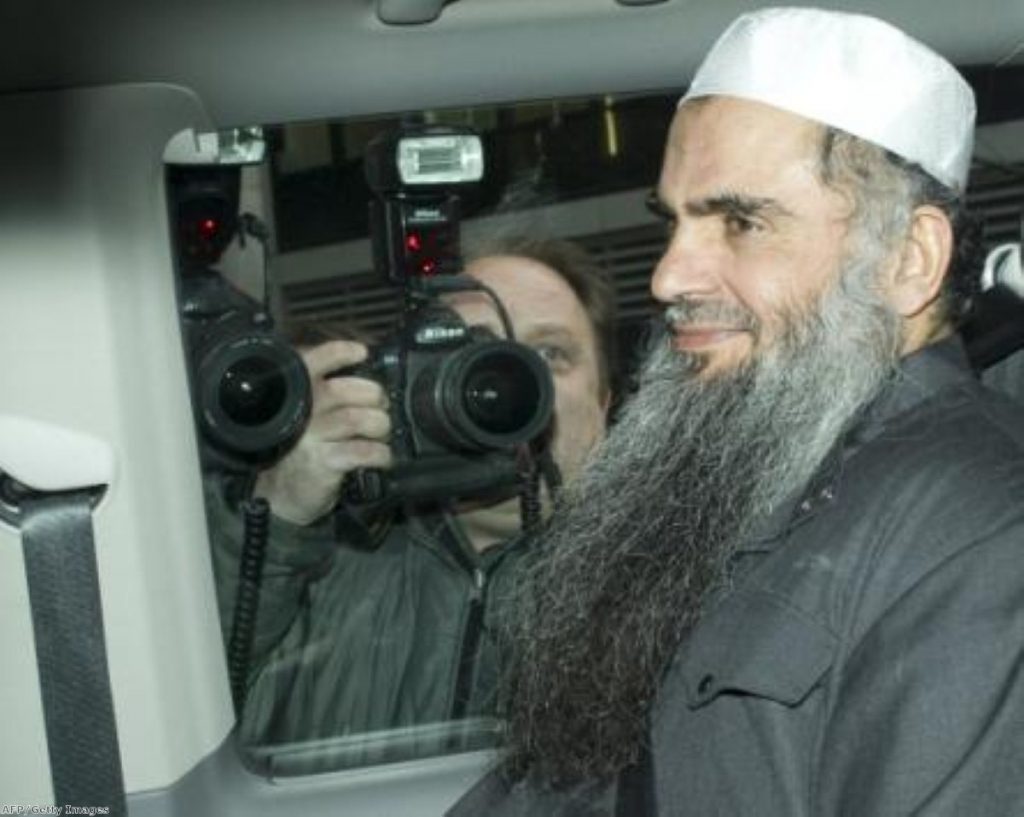May considers pulling out of ECHR after Qatada’s legal bill tops £430k
Britain could withdraw from the European Convention on Human Rights altogether following the deportation of Abu Qatada, Theresa May has told MPs.
The home secretary said the option should be "on the table" as she once again raised the possibility of the repeal of the Human Rights Act (HRA).
May said the "crazy interpretation of our human rights laws" needed addressing after Qatada's plane finally took off from RAF Northolt early on Sunday morning.
"Today we should take quiet satisfaction that a dangerous man has been deported to face justice in his own country," she told MPs.


"Last year I said the right place for a terrorist is a prison cell; the right place for a foreign terrorist is a foreign prison cell far away from Britain."
Her Commons statement triggered delight in the chamber, where several MPs compared their feelings with those experienced after Andy Murray's victory in yesterday's Wimbledon final.
Coalition ministers are using the immigration bill to make life harder for illegal immigrants. Those committing serious crimes will be deported in all but the most exceptional circumstances, May said.
"Those reforms can only achieve so much until we make sense of the European court," she warned. "The problems caused by the HRA and the European court in Strasbourg remain."
Qatada succeeded in avoiding deportation for eight years after initially being arrested on terrorism charges in 2001.
The taxpayer paid £430,000 of his legal fees – part of the £1.7 million total cost of his 12-year legal battle.
The European court had blocked his deportation because of a fear that evidence to be used against him could have been obtained under torture. A treaty with the Jordanian government eventually ensured Qatada would receive a fair trial.
"This is a good result not just for the home secretary but for the country," shadow home secretary Yvette Cooper said.
But both Labour and the Liberal Democrats expressed concern that Britain's influence in pressuring other countries on human rights issues would be undermined if the UK withdrew.
"What kind of signal will it send if we resign from the European convention?" Cooper added.
"She should put forward these reforms without ripping up the things she has just achieved."
May responded by accusing Cooper of failing to "get it".
"Members of the public out there cannot understand the human rights laws we currently operate can allow a dangerous person to remain in this country for year after year without being deported," she said.
Liberal Democrat deputy leader Simon Hughes said his party believed it was "fundamentally wrong" for May to repeal the HRA "or even think of pulling out of the European court of human rights".
May replied: "We do, I believe as a country, have to look at our relationship with the European court and the operation of the convention."












